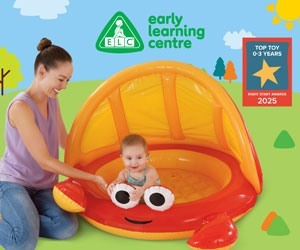Parents should never underestimate the effect their own habits have on their children’s future financial skills! It’s crucial to approach money in a positive way from the start because your child’s attitude towards it is set in the early years.
Experts believe that the ways children approach complex problems and decisions, including financial ones, are largely determined in the first few years of life. Early experiences which encourage children to understand how to plan ahead, how to problem-solve and even how to regulate their emotions, can make a huge difference in promoting sound financial sense.
Here’s a rough guide to what children understand about money and when:
- If given the choice of 20 pennies or one 20-pence-piece, toddlers usually choose the 20 pennies because they look ‘more’.
- Three to four-year-olds know you need money to shop, but might try to take items without paying! By four, children understand that they need to pay for goods but might not fully grasp that coins have different values. By five or six, children realise that some denominations don’t carry enough value to buy certain things.
- By seven, most children recognise the value of money and can count it out and understand that it can be earned and exchanged for goods. They’re capable of complex functions like planning ahead.
- Some under-eights – and probably adults too! – still can’t fully distinguish between ‘luxuries’ (wants) and ‘necessities’ (needs).
Good habits
Children learn financial habits the way they learn other habits: by watching what you do. This is known as modelling behaviour. Your example is the most powerful teaching tool you’ve got.
When children have positive experiences with money, it helps them to develop financial understanding. The fun of doing something with parents, such as putting coins in a piggy bank, participating in the weekly shop and paying in money at the bank, encourages children to develop positive responsible financial attitudes.
Make a list before you go to the supermarket – this introduces the idea of prioritising. Tell children what you’re saving up for and how you’ve budgeted for future purchases. This helps them to understand that there’s a limited amount of money available and that there are choices – money spent on one thing means that there’s less left for something else.
Above all, make learning about money fun! Don’t try to hammer home financial concepts to children: instead, take a playful approach. Interactive activities help children to keep their focus. Around the age of three is a great time to start involving younger children in things financial. Start by introducing coins and counting games. Once children have some money of their own, get a piggy bank and talk about saving. Try these ideas for promoting earning, saving, spending and budgeting:
Children from the age of around three, who can understand the concept of role play, just love playing shop. Get a cash register and give your child some real coins. They will soon learn that they have to pay for treats! Introduce the idea of giving money over to the cashier and waiting for change.
We all remember the excitement of spending our first coins at the toy shop. Don’t agonise over the exact sum – it just needs to make your child think about what they’ve got and what it can buy them. The key is that it’s a non-negotiable, fixed amount and once it’s spent there’s no more.
When children want a toy that costs more than their pocket money, explain that they will be able to afford it if they put some pocket money aside each week. It’s a simple and highly effective way of teaching children about decision-making, delayed gratification and financial planning.
To learn about income, little ones can tackle simple household chores for pocket money, providing a first taste of earning money through work. Older children can be given chores of different value. This provides the incentive to work harder and the message that you don’t get something for nothing!
- Marketing and advertising
Sadly, children are a valuable target market for advertisers so it’s more important than ever to promote sensible financial habits. For older children, try tackling marketing head-on. When shopping with under-eights, ask them why they think there are sweeties by the till. Explain that it’s because a supermarket’s job is to make money, so they put the sweeties there to get them to ask Mummy or Daddy to buy them.












